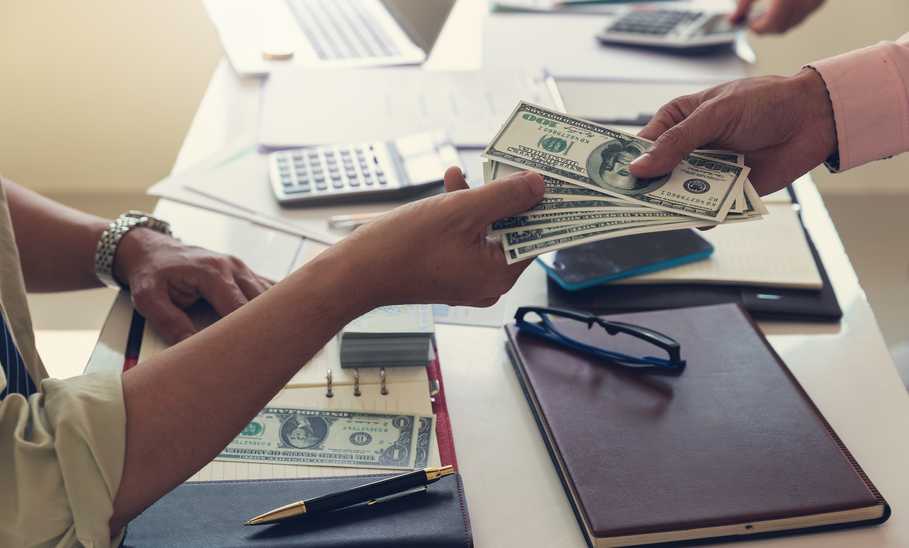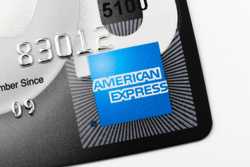What Is a Cash Advance on a Credit Card? Pros, Cons, Alternatives


Our evaluations and opinions are not influenced by our advertising relationships, but we may earn a commission from our partners’ links. This content is created by TIME Stamped, under TIME’s direction and produced in accordance with TIME’s editorial guidelines and overseen by TIME’s editorial staff. Learn more about it.
A cash advance is a service that credit card companies offer enabling consumers to withdraw cash by borrowing against their credit card. While you can use credit cards to purchase many types of goods and services, some situations require cash. If you need cash for an emergency or unexpected expense and are considering using a cash advance, here’s what to expect.
The most common way to get a cash advance is to use a credit card that offers this feature. There are a few ways to access cash using your credit card, depending on the carrier.
Keep in mind that your credit card likely has limits on the amount of cash you can take out with a cash advance.
Many different credit card carriers offer cash advances. However, the terms, fees, and interest rates will vary. Some credit cards have specific withdrawal limits. Credit card companies might also charge a different interest rate for cash advances than for regular purchases. If you’re considering using a cash advance from a credit card, it’s vital to understand the terms and conditions of your card carrier before doing so.
In an emergency it’s tempting to withdraw cash quickly. However, taking on unexpected fees and interest charges when you’re already low on funds can add to financial stress down the line. That’s why it’s important to think through your options clearly.
Here are some pros and cons to be aware of before deciding to take out a cash advance.
| Pros | Cons |
|---|---|
Immediate access to funds | Limited withdrawal amounts |
Typically no credit check is required | Potential impact on credit score |
Convenient | High interest rates and fees |
A cash advance does have some benefits. They include:.
Unlike loans, you can access cash immediately when you use a cash advance. You can typically go to a bank or an ATM and have cash in your hand within minutes.
Typically, when it comes to a cash advance, there will not be a credit check. You borrow against a credit card you already have, so there is no need for one.
If you’re seeking a merchant cash advance, however, some lenders may require a credit check. Others may prioritize your business's revenue or your credit profile.
If you were to apply for a traditional loan, you would have to provide documentation, fill out an application, and wait—likely several days or longer—for a decision before getting your funds. A cash advance is much more convenient, because you simply use a credit card that you already have to get cash quickly.
While a cash advance is convenient, quick, and typically does not require a credit check, it’s important to know the disadvantages that come with it.
If you want a cash advance, you will not be able to take out more cash than the amount of credit available on the card. If your card is maxed out, you won’t be able to withdraw cash at all.
If you do have available credit on the card, you may still only be allowed to withdraw a percentage of your card’s total credit limit, as many companies set limits on cash advances. Ultimately, the amount an individual can withdraw will vary, depending on their personal situation.
While taking a cash advance won’t negatively affect your credit, when the amount of credit you are using rises, it can negatively affect your credit score. Credit utilization is 30% of your credit score.
The most significant negative of a credit card cash advance is the high interest rate. Each credit card company chooses the interest rates and fees it charges. Consumers should read the fine print before taking out a cash advance or using convenience checks. (If you have convenience checks, the interest rate on them will likely be in the information on the first page or two of the check.)
Don’t assume that your interest rate for a cash advance or convenience checks will be the same as the interest rate on your credit card for purchases; it is often much higher. Determine the interest rate and the added cost of borrowing funds before taking a cash advance.
Because of the high-interest rates and fees on cash advances, it’s important to consider alternatives to cash advances. A cash advance should be a last resort in the case of an extreme emergency. If you have time and availability, consider one of these alternatives first.
If you have a solid credit score, you could be eligible for a personal loan. These typically have much better interest rates than cash advances, and many companies can deposit funds in your bank account quickly. You should shop around to find the companies with the best personal loan rates. There are also cash advance apps - with no credit checks, interest or mandatory fees - which are worth checking if you need to get quick money until your next pay day.
If you need cash quickly, asking a friend or family member for a temporary loan could be a better alternative than getting a cash advance. If that’s not an option, consider taking something valuable to a pawn shop and either selling it for cash or pawning it. Pawning means you can get cash for a certain period while the shop holds your item as collateral. You can get it back by repaying the loan plus any fees before the period ends.
Having an emergency fund in a high-yield savings account helps you avoid paying significant fees and high interest rates to borrow cash quickly. If you don’t have one, make it your next financial goal.
If you have an unexpected expense, such as a hospital visit or car repair, first ask the company or hospital if it offers payment plans. Hospitals might even have financial-assistance programs if you meet specific income requirements.
Depending on your company’s plan, you may be able to borrow from your 401(k) if you have funds there. You will have to pay it back with interest, but you will be paying that interest to yourself. It’s not good to borrow from your future—and there are rules about what constitutes a hardship withdrawal—but it is an option to consider in an emergency.
Because cash advances come with high interest rates and fees, you should only get one in an extreme emergency when no other options are available. A cash advance should be a last resort.
You can use a cash advance to borrow money if you need cash quickly due to an emergency or unforeseen circumstance. However, if you are considering getting a cash advance, it’s important to know the pros and cons of this type of lending.
Cash advances can be helpful in extreme situations, but consumers should be aware of high interest rates and fees. Other forms of borrowing are preferable to cash advances. Still, if you must get one because you have no other options, read the fine print before making this decision and call your credit card provider if you have any questions.
Your cash advance will appear as a line item on your credit card activity. You would pay it off with your monthly credit card payment, just like the other items listed.
A cash advance is taken against the available credit on your credit card, while a payday loan is offered by an individual lending institution. You do not have to have a credit card to get a payday loan.
Interest rates and fees for a cash advance are generally quite high. Payday loans will cost you even more. They usually charge a percentage or dollar amount for each $100 borrowed. It is often the equivalent of nearly a 400% APR for a two-week loan. Neither is a smart way of borrowing money.
It can’t be done. The only way to avoid cash advance fees is to borrow money using a different method.
The information presented here is created by TIME Stamped and overseen by TIME editorial staff. To learn more, see our About Us page.



